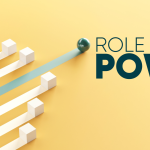Imagine if you could read one book every day. Just think about all the knowledge and wisdom you would gain in a year. Unfortunately, most of us don’t have that kind of time. But, that doesn’t mean we can’t read effectively and gain valuable insights from the books we read.
Reading is essential to success in any field. The more you read, the more you learn, and the more you learn, the better you become at your chosen profession.
But what if you’re not a natural reader? What if you struggle to read books or find it hard to remember what you’ve read? Don’t worry—you’re not alone.
There are tips and tricks which can help you learn how to read effectively and implement the lessons learned. In this article, I have compiled a list of the best techniques and hacks to help you.
Table of Contents
What is Effective Reading?
Everyone can read, but not all reading is effective. For reading to be effective, what is read must be properly understood by the reader and well applied in real-life scenarios. Reading effectively involves being able to understand and retain the information that you are reading.
Reading is a great way to learn new skills and expand your vocabulary. But reading can be hard work if you don’t know how to read effectively. You may have been reading for years and still not know the trick to learning how to read. To get the most out of your reading time, you must know how to read properly and effectively. It’s hard to learn how to read effectively and implement lessons learned, but it doesn’t have to be.
Here are some tips to learn how to read effectively and implement the lessons you learn:
How to Read Effectively and Implement the Lessons
-
Create a conducive reading environment
The first step in learning to read is creating a conducive reading environment. A conducive environment is one where the surrounding temperature, lighting, noise level, and other factors are geared toward learning and retaining information. This helps your attention and understanding and makes it easier to focus on just one piece of information at a time.
The following tips can help you create the right environment for your reading:
- Choose the most appropriate time of your day for reading.
It can be morning, midday, or at night. If you choose to read at night, you should avoid reading in bed, as it might cause drowsiness and make it difficult for you to focus on your reading. Reading at night could also lead to poor sleep quality, increased stress levels, and less motivation during the day. So consider this when choosing your reading time.
- Make sure there are no distractions around you
Turn off all electronics like TV, phone and computer before starting your reading session so that they won’t distract or bother you while trying to read something important. You should place your cell phone away from your body because it might be distracting by ringing or vibrating when it’s turned on or charging up. This will not only mess up your focus but also put pressure on your eyes and make them tired quickly if used too much throughout the day.
- Make sure you have enough light
If you don’t have enough light, it will make it difficult for your eyes to adjust and more challenging for them to recognize what they see on the page. Turn on all lights in your reading space so that plenty of light is available for both nighttime reading and daylight time reading.
-
Create a consistent reading routine
In learning how to read, it’s important to create a consistent routine for reading. By doing so, you will develop good habits, which will help in the later stages of learning how to read effectively. For example, if you always read at night before going to bed, this will become part of your routine which will help reinforce this behaviour over time.
-
Set a purpose for reading
Before you begin reading, know why you are reading the material. This will help you stay focused and determine the most important information to pay attention to.
Reading is a form of self-improvement. It allows us to develop our minds and characters, learn new things, and take on new challenges. Therefore, reading should be more than just for fun or leisure but something we do regularly. We should always have a goal for when we read, whether it be to improve ourselves, learn new things or enjoy the storyline.
Reading can be very enjoyable and relaxing, but reading the right way can be challenging. Sometimes, you want to get through the book quickly and move on to something else. However, reading for pleasure should be considered a good use of time.
You must always have a goal for your reading. For example, if you’re reading for fun and learning something new, pick something that fits your interests.
If you’re trying to learn about a specific topic, ensure that your reading is directed toward that topic. If you’re trying to improve your writing skills or think critically about a subject, read books written in a way that fits your work.
If possible, read books on subjects that interest you — this will help ensure that the information sinks in better than just random facts or stories.
-
Create a reading plan
One of the most common reasons people give for not reading is that they don’t have enough time, but there are ways to ensure you have enough time to read. Creating a reading plan is one way. It will help organize your schedule and stick to it.
Reading plans are a great way to track what you’ve read and when. They can help you remember what information you have already learned and what you need next in your reading or studying process. Create a reading plan by listing the books you want, when you should read them, and any other important details about each book so they are easily accessible whenever needed.
If you’re not sure where to start, research shows that an easy way to get started is by creating a reading list of at least 100 books that interest you. Then pick five books from this list and read them for a month.
Read Also: The Pros and Cons of Listening to Music While Reading
-
Record ideas and thoughts in a journal
Make notes while reading, especially if you don’t understand something. These little “aha!” moments can be vital in understanding the rest of the material. Start with the most important point, then go into details, and only fill in what you don’t know from your notes later.
If you want to learn how to read effectively, record your ideas and thoughts in a journal so you can always return to them. When reading, it is important to pay attention to the details of what is being said to gain insight into what is being discussed. This is especially true when it comes to books on non-fiction topics.
After reading, take some time to record your own thoughts on the material and compare them with those of the author. You should also note any questions that arose from what was written that may have been left unanswered by the author or yourself during reading.
Follow us on Instagram to receive daily tips that will motivate you to achieve your goals and also subscribe to our newsletter for more informative posts
-
Reflect
As you read, take breaks and pauses to think about what you just finished reading. A good time to take a pause is after the main idea or at the end of a chapter. Take a deep breath and think about what you understand from what you just read.
How can you apply it in your life? What new thing have you learnt? Do you agree with the author or disagree? If you agree, why? If you disagree, what are your reasons? Make notes of these things. You can also pause to do minor research to strengthen your opinions.
Read Also: The Best Ways To Set Achievable Goals
-
Develop the act of skimming and scanning
Are you trying to learn how to read faster and more effectively? Developing a skimming and scanning strategy can help you achieve this goal. Skimming is the ability to quickly pick out the main ideas of a text, while scanning is finding specific information by looking for keywords. Below are some helpful tips for mastering these two essential reading skills.
- Speed read
The first step in developing a skimming and scanning strategy is learning to speed read. This means reading with purpose and focusing on moving through the text quickly. When skimming, try to identify the main ideas that the author is attempting to communicate without getting too bogged down in details.
Then, when scanning, look for keywords or phrases that will help you quickly find the information you need.
- Recognize patterns
As you become more familiar with the text, try to recognize patterns in the words or sentences that allow you to identify the main ideas quickly. This will make it easier for your eyes and brain to recognize important points as you skim over them quickly.
- Follow logic
It’s important when reading any material that you understand the overall flow and logic of what’s being written. Understanding how a sentence or paragraph connects with those before and after helps build your understanding and knowledge about the topic being discussed.
- Break It Down
If long passages feel overwhelming, break them up into smaller chunks of information—this will help your brain process them more efficiently. Focusing on one section at a time also makes it easier for your eyes to move from one area of the text to another without getting lost in details or skipping over important points.
-
Summarize and implement lessons learned
After you have finished reading, summarize the material in your own words. This will help you understand and remember the main points. At a basic level, you should remember the main point after reading any article or book. If you can’t write a summary, go through your notes to refresh your memory and summarize what you remember, it doesn’t have to be detailed. A summary will do.
Try to make connections between different parts of the text to grasp how they tie together. Understanding context is also essential; this helps you understand how one idea fits into another or why something happened in certain circumstances.
From here, draw conclusions from what you’ve read and ask yourself questions about what was said—what implications does it have? How does it affect other ideas? It’s also important to reflect on lessons learned from your reading and consider how they could be applied in real-life scenarios.
Conclusion
Reading should be an enjoyable experience. It should not feel like a chore. You can learn so much more by following these tips for learning how to read effectively! Implementing lessons learned from books and articles can benefit your life greatly, giving greater insight into pressing matters or even general knowledge.
So next time you pick up a book or open an article, look out for how you can use these strategies to gain maximum benefit from your reading experience!
Are you getting value? Join our Whatsapp Community to meet knowledgeable people who guide you through reading. Readers are leaders!
About Author
- Marvellous Onyekponwane is a law graduate from Obafemi Awolowo University, who is passionate about peace, conflict resolution and Self Confidence. She loves helping people grow their self-esteem. She also enjoys writing, reading,watching movies, and visiting new places which she vlogs about on her youtube channel.
Latest entries
 OpinionMarch 21, 2023The Power of Influence: Why You Should Choose Your Role Model Carefully
OpinionMarch 21, 2023The Power of Influence: Why You Should Choose Your Role Model Carefully LifestyleJanuary 16, 2023Guide to Booking Flights in Nigeria
LifestyleJanuary 16, 2023Guide to Booking Flights in Nigeria LifestyleDecember 27, 2022Insightful Tips to Learn How to Read Effectively and Implement Lessons Learned
LifestyleDecember 27, 2022Insightful Tips to Learn How to Read Effectively and Implement Lessons Learned SpiceDecember 6, 202212 Best Romantic Restaurants for Your First Date in Nigeria
SpiceDecember 6, 202212 Best Romantic Restaurants for Your First Date in Nigeria

